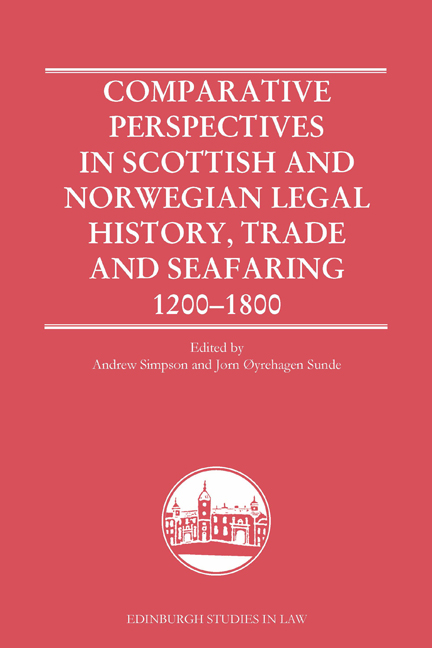2 - The Treaty of Perth: Union of the realm and the laws of the kingdom
Published online by Cambridge University Press: 17 November 2023
Summary
A: INTRODUCTION
In a “final agreement” between King Magnus Håkonsson and Alexander III, concluded on 2 July 1266 at the Dominican house at Perth, the king of Norway ceded Man and the islands around Scotland's west coast to the king of Scots for a sum of money, while explicitly retaining Orkney and Shetland. In the Chronicle of Man a scribe not long afterwards noted tersely that “the kingdom of Man and the Isles was transferred to Alexander king of Scots”. The last king of Man and the Isles, King Magnus, son of Ólaf, had died eight months earlier. Alexander was not the new king of Man and the Isles, however; neither was he the kingdom's overlord, as the king of Norway had been. He was ruling the Isles as part of his own kingdom. This has been seen from a modern perspective as the moment when (to quote Keith Stringer), Alexander III “effectively secured Scotland's identity as a unitary state by bringing nearly all its inhabitants and territories under his sole and undisputed authority”. This paper will take a different approach and explore what the Treaty of Perth might have meant to the Scottish ruling elite at the time in terms of the kingdom's unity and identity. As such, the Treaty will be regarded first and foremost as a source; not for what actually happened in practice when Man and the Isles were incorporated into the Scottish kingdom, but for what was envisaged at the time. This complements Erik Opsahl's chapter not only by viewing the Treaty from the perspective of Scottish history, but by tackling the issue of the unity and identity of the realm according to what was imagined about the kingdom's past and its laws rather than its actual political and constitutional development. This is partly a reflection of the disparity of material at a Scottish historian's disposal compared to their Norwegian counterpart. It is also possible because our understanding of the development of the Scottish state in this period has recently been transformed by Alice Taylor's seminal book.
The discussion of the Treaty of Perth in this chapter will hinge on a particular passage relating to the observance of the laws and customs of the kingdom.
- Type
- Chapter
- Information
- Comparative Perspectives in Scottish and Norwegian Legal History, Trade and Seafaring, 1200-1800 , pp. 63 - 94Publisher: Edinburgh University PressPrint publication year: 2023



